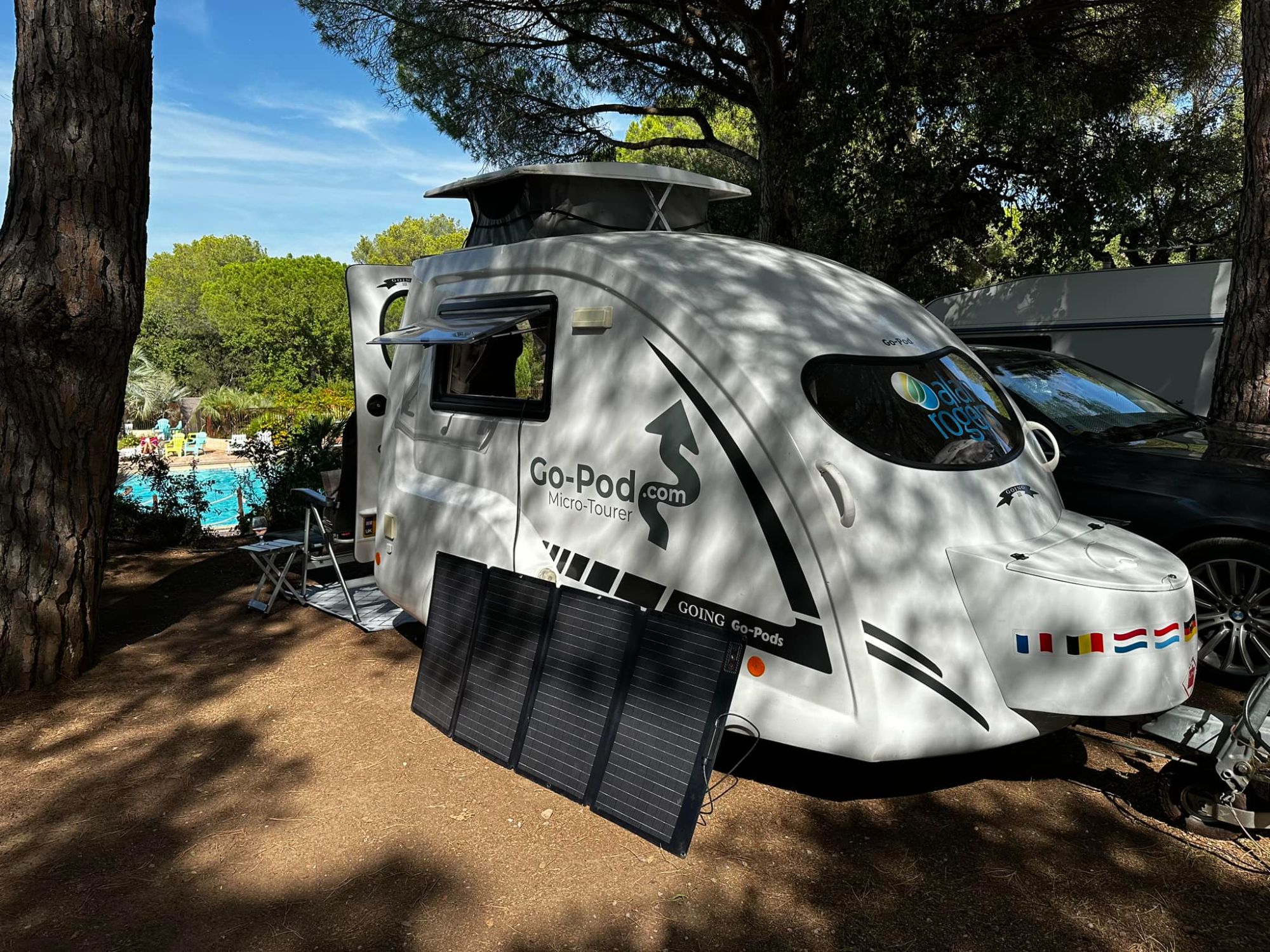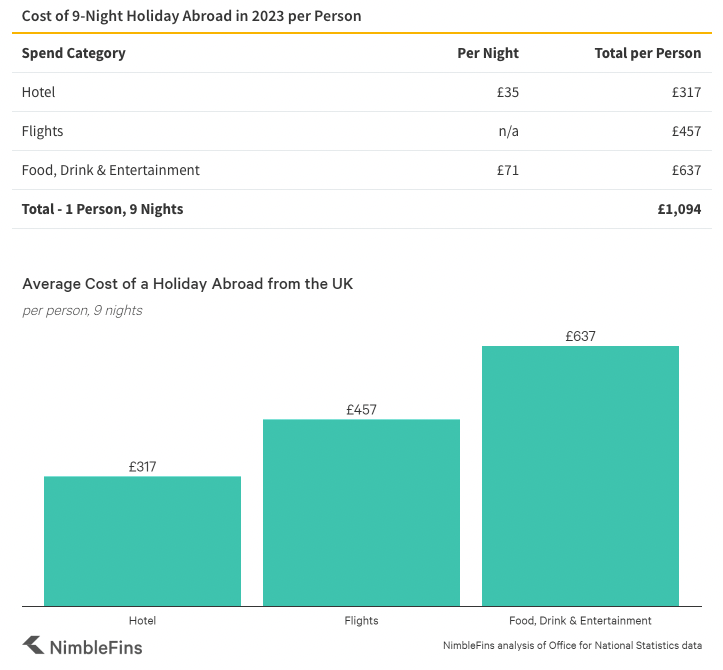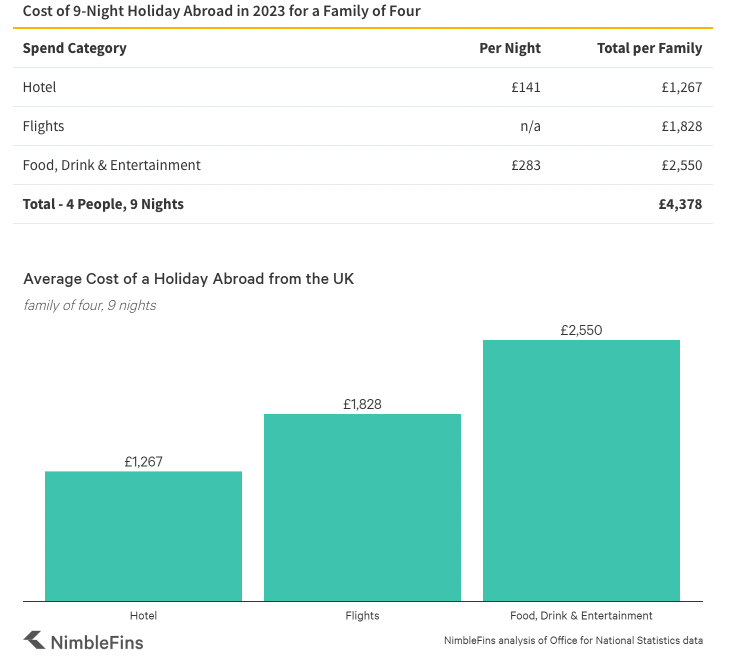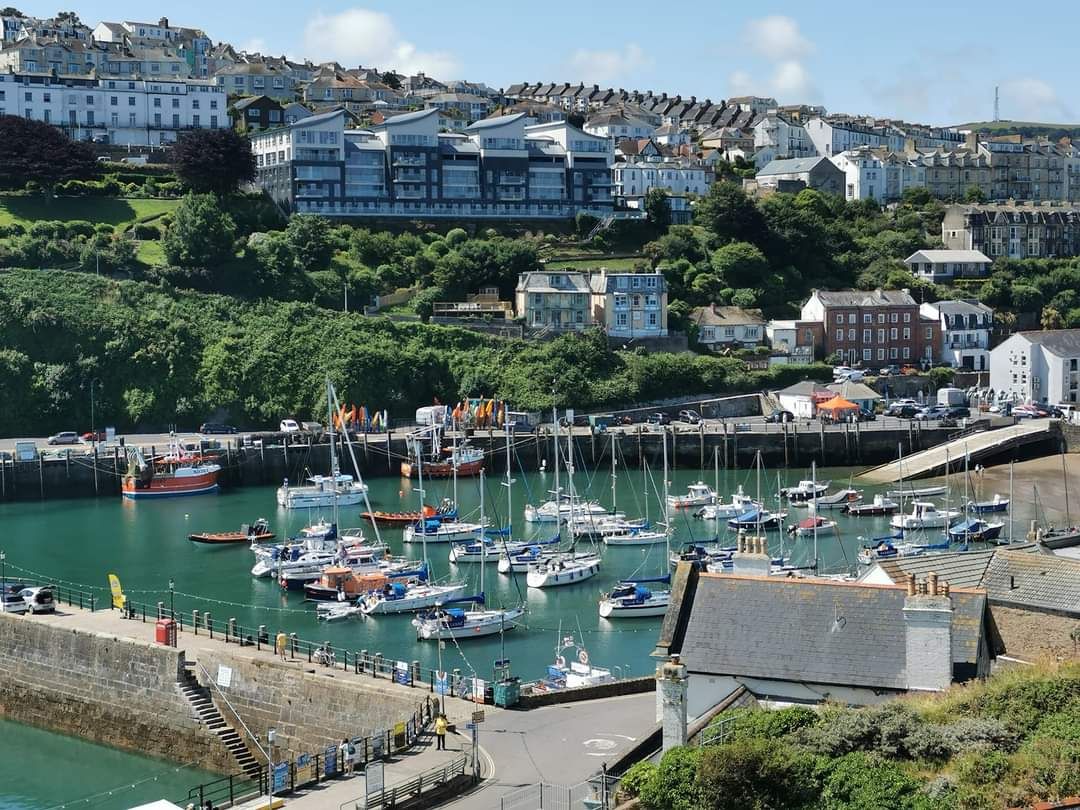Are Go-Pods an economical holiday option?

Cost of living is at an all-time high in the UK - with fuel prices, food shopping and energy bills the most expensive in recent memory - so many of us are having to tighten the purse strings and cut back on luxuries to make ends meet.
Holidays are often first on the chopping block as they're simply not viewed as a necessity and it's difficult to justify spending on travel when there are more pressing matters to attend to. Sure, an all-inclusive holiday abroad can be rejuvenating and everyone needs a little R&R from time to time - but the fact remains that once you return home, all you're left with is memories and a few holiday snaps rather than something tangible.
But what if there was a holiday option on the market that could actually be viewed as an investment? Say, perhaps, a micro tourer that can be stored at home and used time and again for multiple holidays at a fraction of the cost of a regular holiday?
Holidays abroad - a short history
For the best part of a century, us Brits have become well known for seeking respite from our often downright inhospitable weather in favour of warmer climates. Millions of Brits holiday abroad each year with many of us decending en-masse onto idyllic coastal villages & towns in the Mediterranean, made possible by our close proximity to the continent and cheap airline fares and package holiday deals.
The concept of a "holiday" has come a long way since it was popularised by the Victorians at the turn of the 19th century. The rapid industrialisation of the United Kingdom in the Victorian era saw the emergence of a middle class for the first time in our history, with increased spending power and the ability to afford luxuries that were the exclusive preserve of the elite in times past.
Along with a growing middle class with money to burn, the invention of the steam train in the mid 1800's and an expanding rail network made travel from cities to countryside and coastal locations a new and exciting possibility for many. The introduction of bank holidays in 1871 then popularised the "long weekend" seaside breaks that have been an ever-present part of British culture since.
Fast forward to the 1950's and Thomas Cook holidays began promoting the first foreign holiday packages with charter flights to a number of Mediterranean locations and accommodation all incuded in the deal. Though they were initially unaffordable for most, these package deals paved the road for the foreign holiday revolution that was to come in the 1970's. In the most popular locations (the Costa Brava, for example) entire cities seemingly materialised out of thin air in a matter of years to cater to the ever growing number of British tourists visiting each season.
Thanks to the strength of the Pound in the mid to late 20th century, many Brits were able to travel to these new exotic destinations and live "like royalty" for a fraction of what it would cost back home. This was the true golden age of the holiday & travel industry, but unfortunately the shine has since worn off for many of us due to increasing costs, a faltering UK economy and reduced strength of GBP.
The rising cost of holidays abroad
During the heyday of the package holiday revolution, from the early 1970's through to the milennium, the British Pound was by far the strongest European currency and as a result, British tourists had the most spending power of any European nation. We were able to head abroad to fairer climates and spend lavishly on luxuries (drinking & eating out, as well as excursions) that were simply out of reach back home, buoyed by the relative weakness of European currencies such as the Spanish Peseta, French Francs and Italian Lira.
After the advent of the European Union in the mid 1980's, the writing was well and truly on the wall and the adoption of the Euro as a homogenised monetary currency for most EU nations between 1993 & 2005 spelled the beginning of the end for British spending power on the continent. Prices abroad slowly became more in line with those in the UK, and as a result the cost of the average holiday abroad shot up.
The rise of budget airlines and self-catering accommodation served to dampen the blow a little, but the fact remains that without serious planning and frugal budgeting, a cheap holiday abroad simply isn't a realistic proposition anymore.
Nimblefins.co.uk analysed data from the Office for National Statistics relating to the average cost of holidays abroad in 2023, and the results really put it all into perspective:

Based on these figures, 9 nights abroad (the average holiday length in 2023) comes in at a whopping £1,094.00 for a single person, based on a non-package holiday with flights and acommodation booked separately.
For a family of 4, this equates to an eye-watering average spend of over £4,000.00!

To put this into further context, the average household income in the UK in 2023 was £34,963.00 (according to the Office for National Statistics) meaning that the average cost of a holiday abroad for a family of 4 equates to over 12% of their total yearly income!
It's no wonder that for many families, trips abroad are a biennial occurence at most, requiring strict budgeting and frugal saving to become a realistic possibility.
Are staycations a more economical holiday option?

The concept of staycations (a portmanteau of "stay" and "vacation" - i.e. the choice to holiday domestically, rather than abroad) was thrust into the limelight during the COVID-lockdown periods in 2020 and 2021, when travel abroad was restricted and many of us, driven stir-crazy after being housebound for several months, yearned for a change of scenery and chance to recharge our batteries after one of the most challenging and frankly strange periods in living memory.
The lockdown-fuelled mass popularity of staycations may have been a relatively short-lived thing, with travel restrictions partially lifted in the second half of 2022 and a return to "business as usual" in 2023, but - perhaps not surprisingly, given the UK has a large number of natural beauty spots and desirable holiday locations - figures from VisitBritain.org show that the popularity of domestic holidays may be here to stay after all and the concept of staycations has seemingly become firmly embedded in the mainstream consciousness.
We're big fans of pros & cons lists (you may have noticed) and when you break it all down, it's not hard to deduce why staycations have become and remain a popular holiday option for British holidaymakers:
Pros
- Easier to plan - the UK is a very compact country and almost any location is reachable within a day's travel
- Easy to budget for - even with slight variations in the cost of food, fuel and accommodation in different areas of the country, it's far easier to budget for a UK holiday without worrying about exchange rates
- Short breaks possible - overnight stays or weekend breaks are easily achievable with far less travel time to account for. This also allows for spontaneous, unplanned trips!
- Visas, vaccinations and paperwork not required - especially compared to non-EU holiday destinations, staycations are a breeze with no pesky paperwork or other arrangements required beforehand.
- There's an entire country out there to explore! - the marketing campaigns for airlines and travel agents would have you believe that the UK is simply a suburban hellscape with no desirable holiday locations. This definitely isn't the case - the UK has an incredibly varied landscape with rich history and culture at every turn.
Cons
- Unpredictable weather - we all know this one far too well. We're at the mercy of the ever-changing weather here. With all the will in the world, it's nigh impossible to guarantee good weather during a UK holiday, even with constant checking of forecasts in the lead up to your holiday.
- Expensive food, drink & entertainment vs other destinations - one of the drawbacks of living in a relatively prosperous country is that inevitably, food, drink & entertainment is more expensive than other countries (though there is parity throughout most of Europe in the modern day)
- British people everywhere - some of us go abroad to escape our fellow countrymen. Unfortunately, they're everywhere in the UK.
Unless you're firmly in the "I-hate-British-people-and-need-to-escape" camp, the pros list above should vastly outweigh the cons!
The only real sticking point here is the cost of accommodation - particularly when staying at hotels and airBnBs - but we have an economical solution for you.
Could a Go-Pod save me money on holidays?

Before we get down to the "nitty-gritty" part, let's address the elephant in the room - you're reading this article on the website blog of Go-Pods.co.uk, so of course the focus of this next section will be on Go-Pods and may not be totally impartial (though we try our best to provide balanced arguments). Go-Pods inevitably share a number of benefits with other caravans, but also provide a few unique benefits that others don't.
Anyway, back to the matter at hand: could a Go-Pod actually save you money on holidays?
Owners Suzanne & Ian, of The Little Big Adventures of Chilli Pod - Going Go Pod page on Facebook, certainly think so and provided us with a detailed writeup explaining why they think buying a Go-Pod has "future-proofed" their holidays (read the full blog post here), as well as a breakdown of costs for their holiday in Devon in the summer of 2023.
Before purchasing their Go-Pod in 2016, Suzanne & Ian were avid campers but also made an annual trip to Cornwall for a week in July, staying in a rented apartment by the coast. Gradually, year-on-year, they found the cost of this trip, staying in the same rented apartment each time, was increasing to the point that it became a totally unviable option and so they started searching for alternatives.
It was getting to the point where going away for a few weeks a year was becoming way too expensive. Throw in a hundred quids worth of petrol for a return trip to Cornwall, food, parking and eating out and it was totalling a small fortune. It had got to the point where there was no way of economising any further on our trips.
Being seasoned campers, their first considerations were folding trailer-tents or a trailer to transport their existing tent and other camping gear, but they stumbled across Go-Pods online by chance and instantly fell in love as they seemed to tick all of the boxes for them. Their Go-Pod allows them to visit any location in the country at a fraction of the cost of hotels or rented accommodation, provides a comfortable base to return to after a day of exploring and allows the freedom for them to choose where they visit and when. Of course, caravan sites also use seasonal pricing for pitches but the difference between peak and offpeak costs isn't nearly as stark as it is with hotels and other accommodation.
We had got bored of self catering anyway because we had always been campers. We decided on a Pod instead of a trailer for our tent because it just looked so cool, more comfortable and very appealing for our knackered old bones after a full on day of walking. Not to mention how easy it is to tow, setup, clean and store - those are just more reasons why we love it so much.
Suzanne & Ian (being true Northerners) have a particularly frugal mindset and this allows them to save money wherever possible, which they usually reinvest into more holidays in their Go-Pod.
As a cost-analysis exercise in 2022, they looked into the cost of renting the same apartment in Cornwall that they used before purchasing a Go-Pod, and were shocked to find that a week's stay would set them back around £1,400.00 - more than the average cost of a 9 day holiday abroad for a single person, referenced in the earlier section of this blog. And that's without accounting for food, drink and other expenses!
We had a look at how much a week away would cost us now and found that the small apartment we used to rent would set us back a whopping £1200.00 per week. Fuel to get there and back would be nearer £175.00 and, obviously, all other associated expenses have increased.
Based on this, they calculated that over 6 years of Go-Pod ownership (at the time of publishing their blog post, April 2022) their Go-Pod had essentially paid for itself when accounting for their initial outlay for the Go-Pod and accessories, and savings they had made versus previous holidays.
Our Pod has now paid for itself and all of the multitude of accessories we have bought for it. It's fair to say that we don't like "slumming it", so we have bought the best we can buy. Our Pod is used for all our holidays after all. Even with interruptions to going away due to the pandemic, the number of holidays we've taken in our Go-Pod means the initial outlay for our Pod and accessories has more than been covered.
Devon holiday 2023 - cost breakdown
After owning their Go-Pod for nearly 7 years, Suzanne and Ian knew for a fact that holidays in their Go-Pod were a fraction of the cost of alternative options, but decided to analyse a 9 day trip to Devon in the summer of 2023 to back up their assertion with facts and figures.
Everyone holidays a little differently and have different priorities of course, but the below figures should give a good idea of an indicative cost for an average Go-Pod holiday in peak season.
Expense | Per day | Total cost |
|---|---|---|
Overnight stays en route @ Tudor Caravan Park, Slimbridge | £35.00 | £70.00 |
7 nights stay @ Watermouth Valley, Combe Martin | £27.00 | £189.00 |
Fuel - return trip - 280 miles | N/A | £90.00 |
Eating out | £20.00 | £180.00 |
Groceries for cooking in Go-Pod | £6.66 | £60.00 |
Bus to Ilfracombe | N/A (used once) | £3.50/return each |
TOTAL COST | £596.00 |
At a grand total of £596.00, this trip works out at just over half the cost of the average 9 day holiday abroad for a single person (and less than a quarter of the cost for 2 people abroad, if we extrapolate from the single person total) and less than half of the cost of renting the Cornwall apartment that Suzanne & Ian used in the past.
Now, it's worth mentioning again that the cost of the same holiday for another Go-Podder may be higher, depending on their priorities. Suzanne & Ian enjoy long walks, photography and drone flying and spent much of their time on those, which of course didn't cost a penny. They did visit Watermouth Harbour, Woolacombe, Ilfracombe and Combe Martin and ate out multiple times while they were away though!
The verdict
Based on the above, it's hard to argue that Go-Pods aren't a great option for anyone searching for an economical solution for holidays.
By "staycationing" instead of heading abroad on a package holiday deal, you could save yourself a significant sum of money that can then be reinvested into future holidays - but Go-Pods are equally capable of venturing onto the continent thanks to their full EU type approval, ease of towing and economical running costs.
On that point, even holidays abroad are significantly cheaper in a Go-Pod - Alan Rogers Travel Guides are running the first European Go-Pods rally this summer, a 12 day trip across the Champagne-Ardenne and Rhône Alpes regions of France. At just £1,029.00 per Go-Pod including ferry crossings from & to Dover, pitch fees & excursions, this marathon journey of over 15 Go-Pod owners proves that even longer holidays abroad are more cost effective in Go-Pods!








